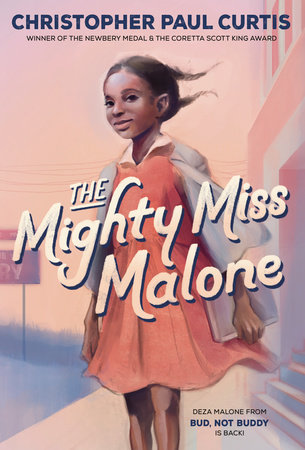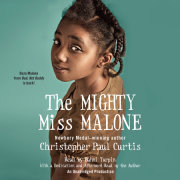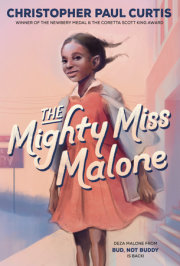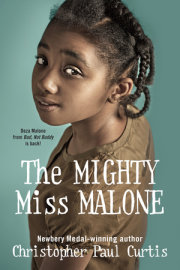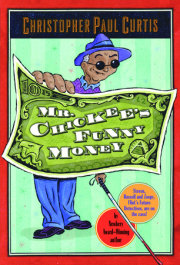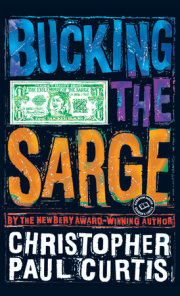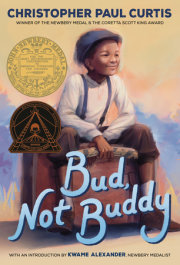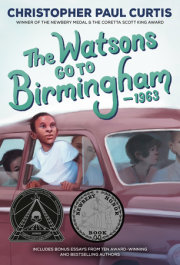Chapter One
Journey to Wonderful
“Once upon a time . . .”
If I could get away with it, that’s how I’d begin every essay I write.
Those are the four best words to use when you start telling about yourself because anything that begins that way always, always finishes with another four words, “. . . they lived happily everafter.”
And that’s a good ending for any story.
I shut my dictionary and thesaurus and went back over my essay for the last time.
The best teacher in the world, Mrs. Karen Needham, had given us a assignment to write about our families. I knew, just like always, she was going to love mine. She’d only asked for two pages but this was our last essay for the year, so I wrote six.
Once upon a time . . . in Gary, Indiana, lived a family of three very special, very happy and uniquely talented people. I am the fourth member of that family and much too modest to include myself in such a grandiose description of their exalted number. But many people say I am of the same ilk and for that I remain internally grateful.
My mother, Mrs. Margaret “Peggy” Sutphen Malone, was born here in Gary, Indiana. She is willowy and radiant and spell-blindingly beautiful. She is also very intelligent. She has a great job cleaning for the Carsdale family. Yes, that Carsdale family! The family whose patriarch is the president of the Gary Citizens’ Bank.
Her most endearing trait is that she is the glue holding this family together.
“Deza?”
I jumped and my pencil flew out of my hand.
When I’m writing or reading a book, everything else around me disappears. Father says it’s because I’ve settled into what I’m doing, the same way my brother Jimmie does when he’s singing.
“Jimmie! I told you not to sneak up on me like that when I’m writing!”
He handed me the pencil. “I couldn’t help it, sis, you were so far gone. What’re you writing?”
“My last essay for Mrs. Needham.”
“You know, a lot of people are saying her not coming back to teach is the best thing that ever happened at Lincoln Woods School.”
“James Malone, if I ever give one-half a hoot what a lot of people are saying, you have my permission to slap me silly. Mrs. Needham is the best teacher in the world. Now, if you don’t mind. I never bother you when you’re singing, don’t bother me when I’m writing.”
“But lots of people love listening to me sing, Deza, seems to me like only you, that little pest Clarice Anne Johnson and Mrs. Needham like reading what you write.”
Jimmie is one of those people who can say something that might sound mean at first, but when he smiles and makes his eyebrows jump up and down you can’t help smiling. He gets this deep, deep dimple in his right cheek and you end up laughing right along with him.
My dearest friend, Clarice Anne Johnson, has a horrible and completely un-understandable crush on Jimmie. She says she bets you could pour cornflakes in his dimple and eat them out with a spoon.
I’m hoping Clarice’s taste in boys improves as she gets older.
“Jimmie, please.”
“Sorry, sis. I’m heading out, can I do anything for you before I split?”
“No, thanks. Just make sure you’re back for supper.”
I looked at Mrs. Needham’s instructions again. “What is the most annoying trait of some of your family members?”
That was easy to come up with for Father and Jimmie, but I couldn’t think of a single annoying trait for Mother. I wrote:
Mother’s pet peeve is that she hates the way a lot of people are mean to Jimmie for no reason.
Her dreams are to see Father get a job where he doesn’t always get laid off, for Jimmie to start growing again and be happy and to watch me graduate from college and be a teacher.
My father, Mr. Roscoe Malone, was born in a village in Michigan called Flint, which is geologically located 250 miles northeast of Gary. For some reason that none of us can understand he is very proud of this. He is tall and strikingly handsome, he’s also intelligent and well-read.
He toils and labors mostly for the Company doing work in a horribly hot furnace and sometimes being a janitor.
His most annoying trait is the way he uses alliteration every chance he has.
I looked up from my paper. That is so true, but I wondered for a minute if I should put it in the essay. It isn’t like he can help himself.
He always calls me his Darling Daughter Deza, and I’m supposed to answer that he is my Dearest Delightful Daddy. He calls Jimmie the Genuine, Gentle Jumpin’ Giant, and Jimmie’s supposed to call him his Fine Friendly Father Figure. Father also calls Mother the Marvelous Mammalian Matriarch, but she says she won’t respond because she refuses to play silly word games with such a “hardheaded husband who hasn’t heard how horrible he is.”
Mother told me, “Such nonsense is in the blood of the Malones and you should be happy that so far it looks like you haven’t inherited any of it.”
She says Jimmie is a different story.
I tapped the pencil on my teeth. I know it’s rude and disloyal to discuss family business with other people, but Mrs. Needham says good writing is always about telling the truth.
Copyright © 2012 by Christopher Paul Curtis. All rights reserved. No part of this excerpt may be reproduced or reprinted without permission in writing from the publisher.

